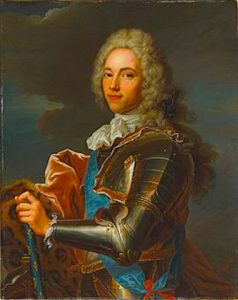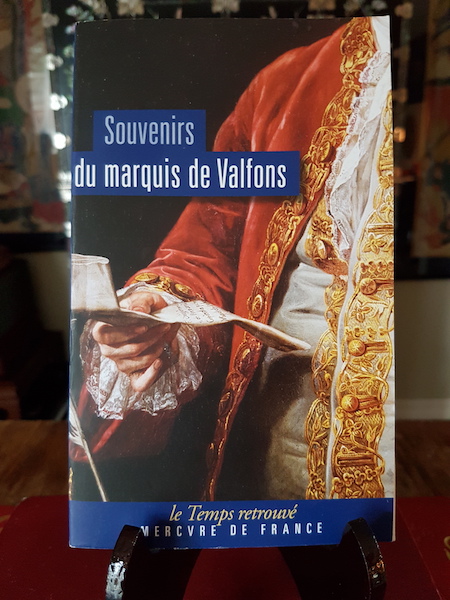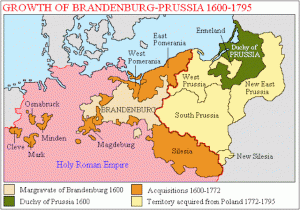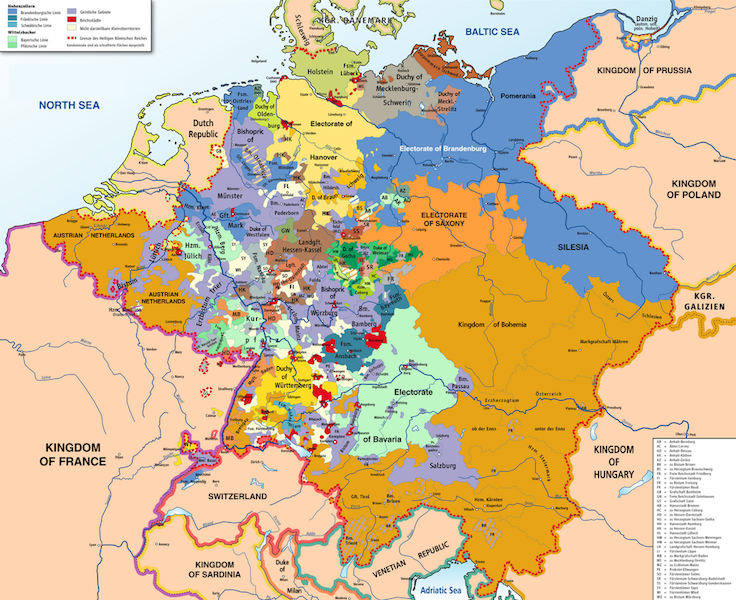It was on this day in the Versailles Century (1682-1789), 16 December 1740, that Frederick II of Prussia, not yet called ‘the Great,’ invaded the Austrian-held duchy of Silesia, thus launching the First Silesian War, which formed one theatre of the wider War of the Austrian Succession.
Silesia, which bordered Prussia, Saxony, and Poland, had hitherto belonged to the crown of Bohemia, i.e. to the Habsburgs. On the death of the Holy Roman Emperor Charles VI in late October without a male heir, Frederick — himself only King of Prussia for less than half a year — saw his chance. Without a declaration of war, the invasion was a complete surprise and a complete success, blindsiding both the Austrians and the Saxons, who also had their eyes on the duchy. Within weeks, Frederick established complete control over the largely Protestant territory. Though a freethinker himself, he was not above posing as the protector of his nominal co-religionists, who welcomed his rule.
Meanwhile, the Habsburg heiress, Maria Theresa, was outraged by the highjacking of her duchy. Unfortunately, she was facing opposition on all fronts and could not properly respond to Frederick’s aggression. Gritting her teeth, she signed the Treaty of Breslau in 1742, recognizing Frederick’s sovereignty over most of Silesia in exchange for his support of her husband’s candidacy to the imperial throne and some financial considerations.
Needless to say, the story does not end here. It took 2 further wars to settle the matter. Maria Theresa started the Second Silesian War (1745-1748) in attempt to win the duchy back after she had gotten her consort, Francis Stephen of Lorraine, elected Holy Roman Emperor as Francis I, and established control over Bohemia. The Third Silesian War (1756-1763), which was the local name for the global Seven Years War, finally forced her to renounce her claim to Silesia forever. It seems she never got over it.


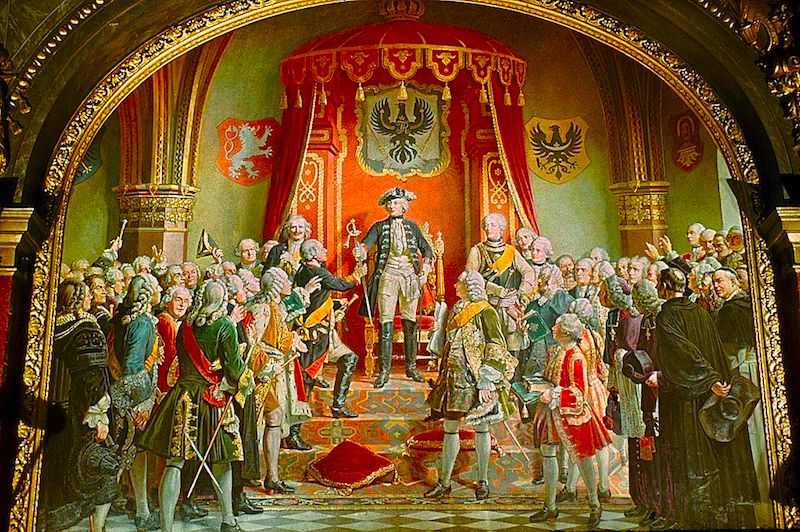





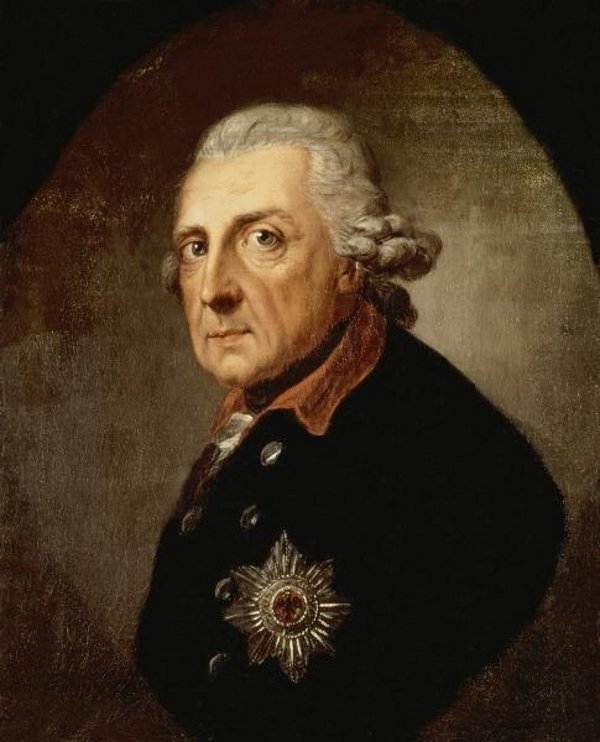
![Von Adolph Menzel - [1]↑ MacDonogh, G. (1999) Frederick the Great, p. 200. New York: St. Martin's Griffin, Gemeinfrei, https://commons.wikimedia.org/w/index.php?curid=16329006](http://versaillescentury.com/vc/wp-content/uploads/2017/04/Tafelrunde.png)
